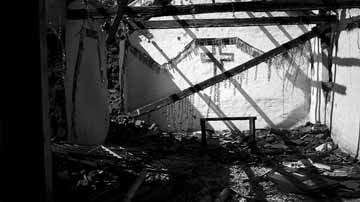Categories: Articles (EMQ), EMQ, Section
Related Articles
Toward a Theology of Evacuation
“Remember your T.P.” That was the code word for “Pack your one suitcase; we are evacuating!” The Evangelical Covenant Church has devised and revised a number of plans to evacuate its missionaries from the Congo/Zaire since work began there in the Ubangi-Mongala in 1935.
Persecution: A Biblical and Personal Reflection
If persecution causes the church to flourish, how are we to address persecution around the world?
Persecution: A Biblical and Personal Reflection
If persecution causes the church to flourish, how are we to address persecution around the world?
By Suffering and Blood: God’s Mission in Contexts of Persecution and Martyrdom
Suffering and martyrdom have strengthened, extended, and purified the Church and attracted non-believers to the Christian faith. Nayak looks at India as an example of church growth through persecution.
When and How Should We Evacuate Our People?
We must attempt to evaluate situations in an objective, rational manner.

